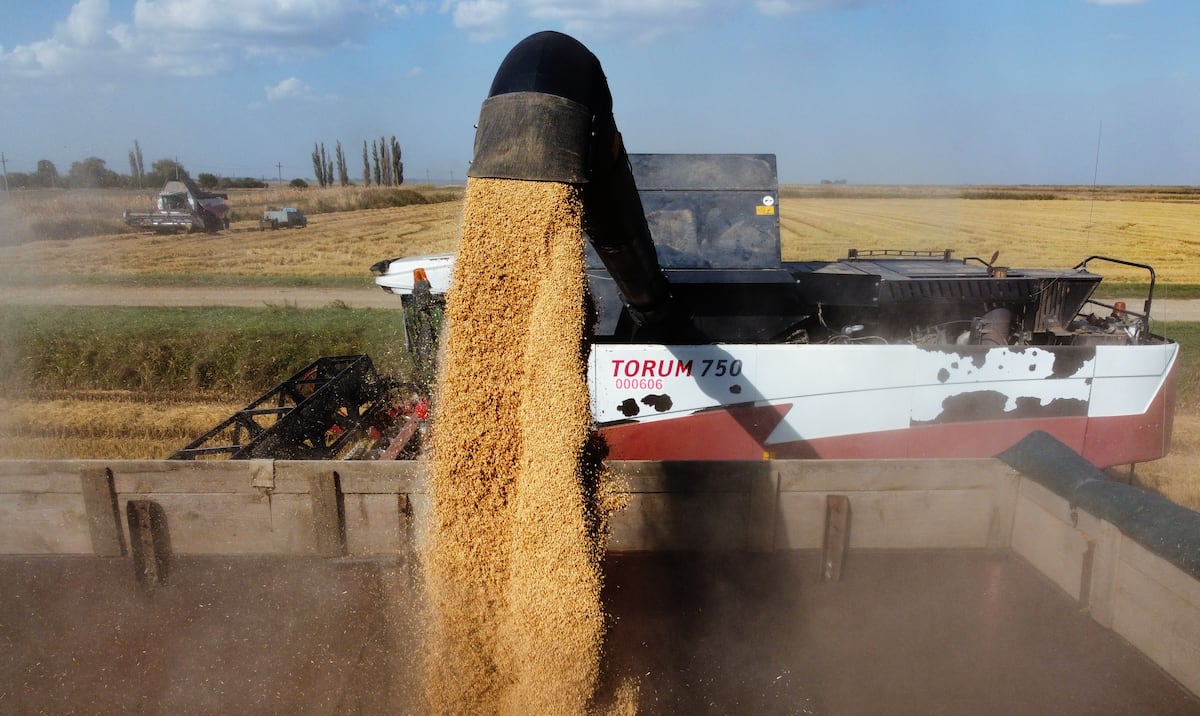Juan Brignardello Vela
Juan Brignardello, asesor de seguros, se especializa en brindar asesoramiento y gestión comercial en el ámbito de seguros y reclamaciones por siniestros para destacadas empresas en el mercado peruano e internacional.




Russian companies have begun to adopt a practice that, while ancient, is gaining new life in the current context: bartering. This system of exchange, which has been used since Neolithic times, has been revived due to the economic strangulation caused by international sanctions following the invasion of Ukraine. With the Western financial system blocked, the Kremlin has been seeking viable alternatives that allow companies to operate without relying on traditional payment methods. One of the most notable examples of this trend is the agreement by the agricultural company Astarta Agrotrading, which in October signed two significant exchanges with Pakistani companies, in which chickpeas will be exchanged for rice and mandarins. Stanislav Neveinitsyn, the owner of Astarta, has expressed optimism about these transactions, although he acknowledged that uncertainties remain, such as the quality of the products and the customs duties associated with these operations. The situation faced by Astarta Agrotrading reflects the broader challenges that Russian companies are experiencing in the context of an increasingly hostile international financial system. According to reports, Russian companies still face blockages in bank transfers, even with Chinese banks, further complicating their ability to participate in international trade. This issue was addressed by Russian President Vladimir Putin during his recent visit to Beijing, where he discussed the limitations imposed by U.S. sanctions. The Kremlin has responded to this situation by launching a guide to facilitate bartering trade, which aims to provide companies with a legal and operational framework to carry out these transactions. The document includes contract templates and procedures for valuing exchanged goods, an attempt to regulate a system that, while rudimentary, could offer short-term solutions. However, the success of bartering is not guaranteed. Although it is promoted as a way to improve competitiveness and reduce costs for Russian companies, there are concerns about its long-term effectiveness. Many entrepreneurs, such as Arkadi Zlochevski, president of the Russian Grain Union, have expressed skepticism, pointing out that ultimately, companies need foreign currency to import machinery and raw materials, which are crucial for maintaining production. The Kremlin's guide has also warned entrepreneurs about the importance of agreeing on the terms of exchanges in advance, as well as considering customs fees to avoid unpleasant surprises. Additionally, they are advised to accurately calculate the value of the products to comply with the country's legal and tax regulations. The resurgence of bartering is framed within a broader context of economic measures driven by the Kremlin since the start of the war in Ukraine. From the legalization of "parallel imports" to smuggling, Russian authorities have sought multiple ways to circumvent sanctions and ensure the continuity of their economy. It is noteworthy that bartering in the food sector had already gained traction in Russia since 2014, when the country began to replace European agricultural products following the embargo imposed in response to the annexation of Crimea. However, the current focus on bartering could prove problematic in a global context where the value and quality of products are essential to maintaining competitive standards. For now, the Kremlin's hopes of revitalizing its economy through this ancient practice depend on the ability of companies to adapt to the new rules of the game and find business partners willing to engage in these transactions. As the conflict in Ukraine continues and sanctions remain in place, bartering is expected to remain a provisional solution in the search for economic alternatives for Russia.
Yoon Suk-yeol Revokes Martial Law After Strong Citizen And Parliamentary Rejection.

World Drought Atlas Warns About The Growing Water Threat By 2050.

Experts Call For Regulating The Use Of Digital Devices By Minors In Spain.






